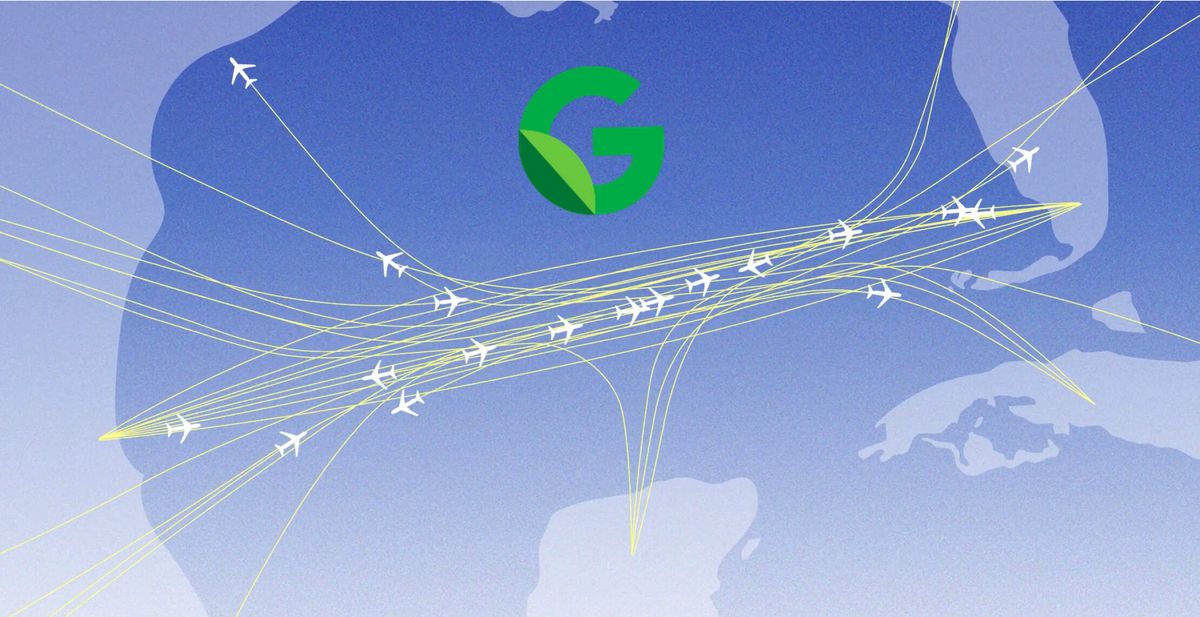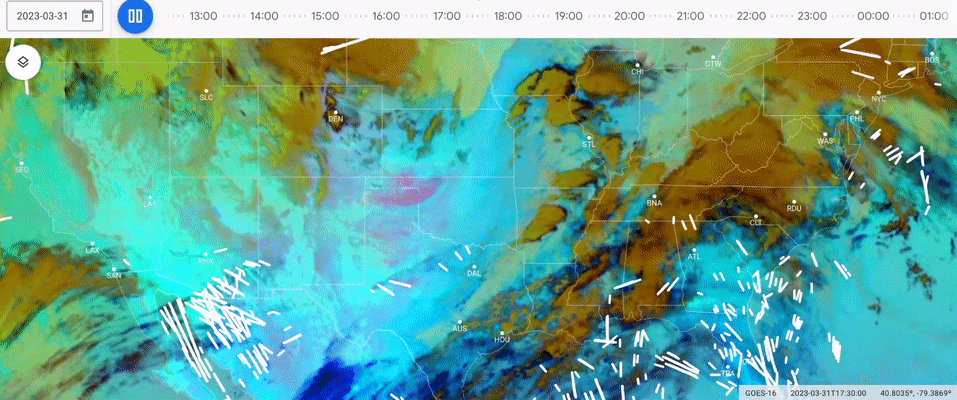
When you look up in the sky, you may have noticed the long, thin clouds that often form behind airplanes. These are known as condensation trails or contrails for short. Contrails have a significant warming effect on our climate, accounting for over a third of commercial aviation's impact on global warming. Now, Google and American Airlines have teamed up to test an AI-based approach to help airlines avoid creating contrails, providing a scalable way to reduce emissions from air travel.
Contrails form when hot, humid exhaust from airplane engines mixes with cold air in the atmosphere, creating artificial clouds made of ice crystals. Unlike normal clouds, contrails can linger for hours, trapping heat radiating from Earth and causing a net warming effect.
To tackle this issue, Google used AI models to analyze satellite imagery, weather data, and flight paths. The result was highly detailed contrail prediction maps that identify the atmospheric conditions most likely to generate persistent contrails along different flight routes.
Armed with these AI-generated forecasts, American Airlines pilots conducted over 70 test flights, adjusting routes to dodge altitudes prone to contrail formation. Analysis of satellite images post-flight showed the adjustments reduced contrails by 54% compared to typical flight paths.

This proof of concept demonstrates contrail avoidance's feasibility and potential to meaningfully cut aviation emissions. While the adjusted flights did burn slightly more fuel, simulations indicate strategic contrail avoidance could reduce total warming by 0.3% across an airline's operations. With further improvements, contrail prevention could be achieved at an abatement cost of $5-25 per ton of CO2 equivalent.
The results so far are really promising. By continuing to refine the AI models and integrating them into flight planning, persistent contrails could be avoided across the industry in a cost-effective way.
Going forward, the team aims to fully automate contrail avoidance, maximizing its climate benefit. They also hope to expand the initiative through collaboration across the aviation sector, bringing eco-friendly skies closer to reality.

